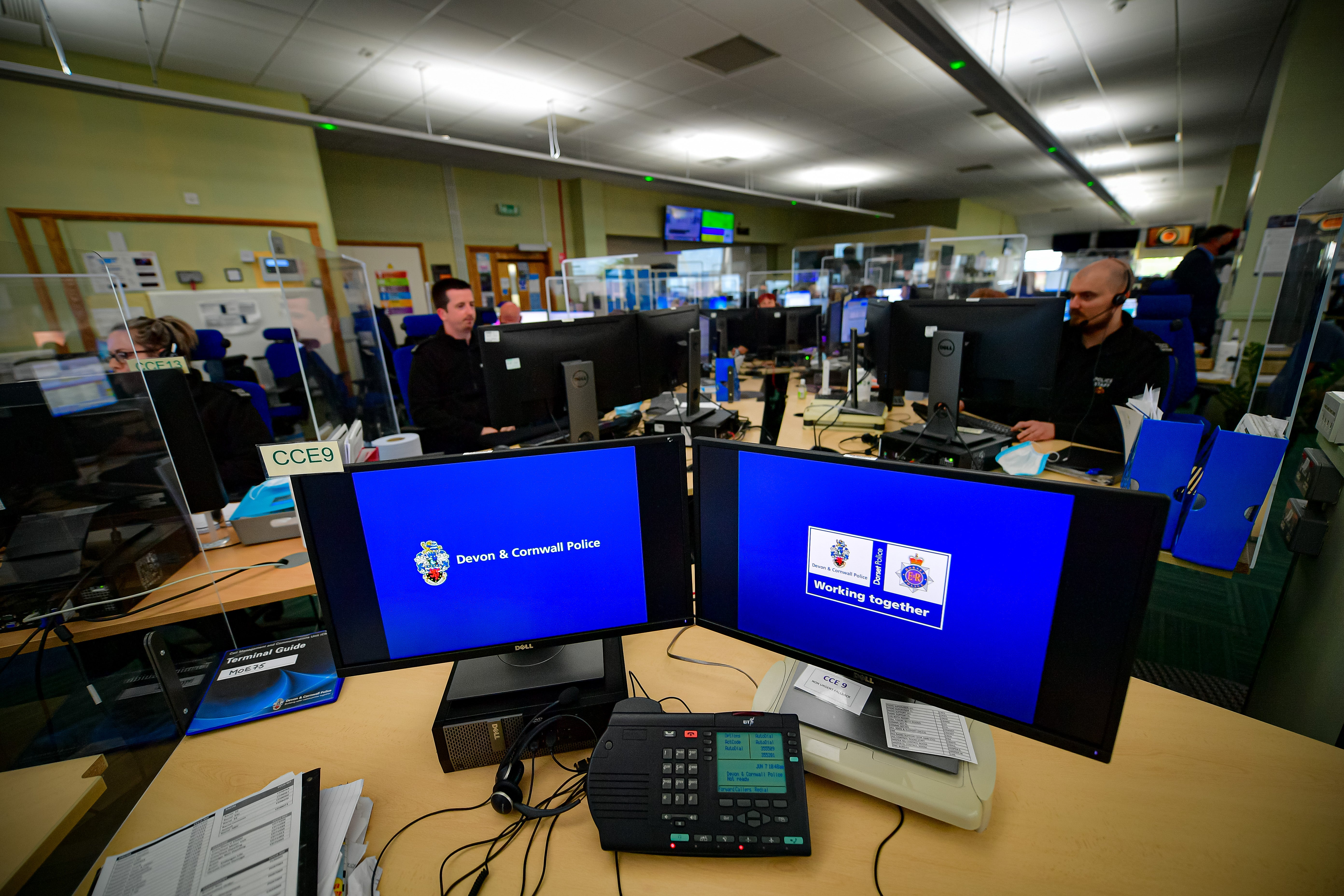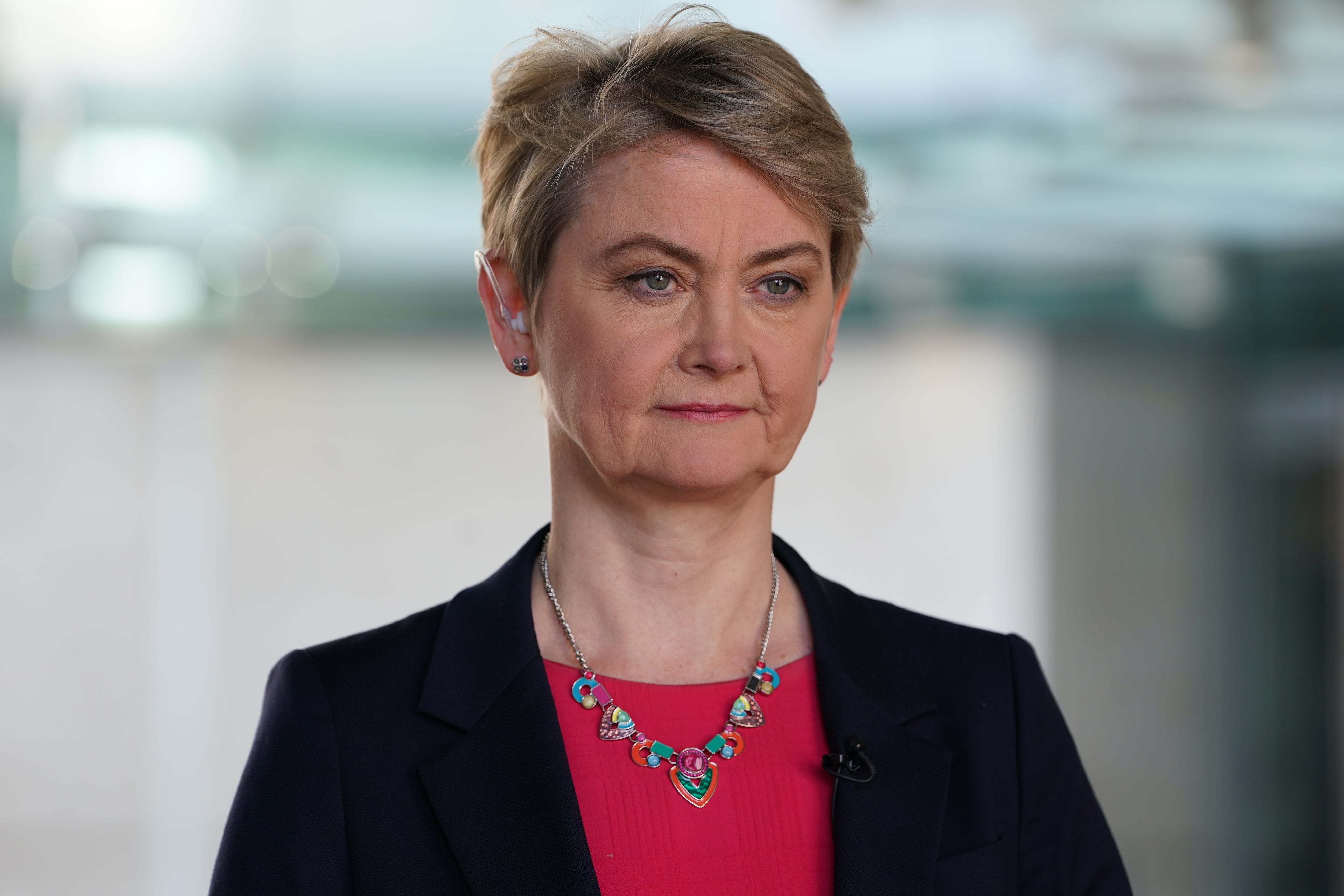Domestic abuse specialists in 999 control rooms to help victims, Yvette Cooper announces
Home Secretary said ‘Raneem’s Law’, named after Raneem Oudeh who was murdered by her ex-partner, marks the start of plansto halve violence against women and girls in a decade
Your support helps us to tell the story
From reproductive rights to climate change to Big Tech, The Independent is on the ground when the story is developing. Whether it's investigating the financials of Elon Musk's pro-Trump PAC or producing our latest documentary, 'The A Word', which shines a light on the American women fighting for reproductive rights, we know how important it is to parse out the facts from the messaging.
At such a critical moment in US history, we need reporters on the ground. Your donation allows us to keep sending journalists to speak to both sides of the story.
The Independent is trusted by Americans across the entire political spectrum. And unlike many other quality news outlets, we choose not to lock Americans out of our reporting and analysis with paywalls. We believe quality journalism should be available to everyone, paid for by those who can afford it.
Your support makes all the difference.Domestic abuse specialists will work in 999 control rooms under a new ‘Raneem’s Law’, Yvette Cooper has announced.
New emergency restraining orders will also give victims greater protection, the home secretary said.
It comes as part of government plans to strengthen the police’s fight against violence towards women.
The Independent has launched the Brick by Brick campaign, in partnership with Refuge, which aims to raise £300,000 to build a safe house for survivors fleeing domestic abuse.
Last year this publication revealed that police were missing crucial opportunities that could protect hundreds of thousands of domestic abuse victims, by failing to impose emergency restraining orders on their alleged attackers.

Police apologised for not considering such an order in the case of Raneem Oudeh, 22, who was murdered by her ex-partner outside her mother’s home in Solihull, West Midlands, in August 2018.
There were 13 reports made to the police about concerns for her safety, with no arrests made. On the night she was killed, she rang 999 four times.
West Midlands Police later said it “should have done more to safeguard Raneem”, including by considering interventions such as a domestic violence protection order, “which could have made her home a safer place”.
Labour has pledged halve violence against women and girls in the next decade.
Almost 100 domestic abuse related offences were recorded by the police every hour on average last year.
Under the new plans, domestic abuse specialists will be embedded in 999 control rooms to help ensure calls for help are treated with the urgency required and victims get the support they need, as part of a pilot project from next year.

Ms Cooper said: “Victims of appalling domestic abuse need to know that the police will be there for them. Today’s measures are the start of this new government’s mission to halve violence against women and girls in a decade.
“Failure to understand the seriousness of domestic abuse costs lives and far too many have already been lost. That’s why introducing ‘Raneem’s Law’ in memory of Raneem and her mother Khaola is so vital – and has been a personal priority for me.”
Nour Norris, campaigner and aunt and sister of Raneem Oudeh and Khaola Saleem, said: “Six years ago, when I lost my niece Raneem and sister Khaola, my world fell apart. Their suffering and the way the system failed them is something I will never forget. That’s when I began my campaign, Secure Life for Raneem’s Law. What started as a quest for justice for my family became a mission to improve outcomes for all domestic abuse victims everywhere.
“Raneem’s Law will ensure that domestic abuse specialists are present in 999 control rooms so victims’ calls for help are taken seriously and save lives by making sure no warning signs are ignored, unlike in Raneem’s story. I am deeply proud that this Government has listened and acted quickly to make Raneem’s Law a reality. Their commitment to addressing domestic violence has shown me that change is possible when we refuse to stay silent.
“Knowing that Raneem’s name will now be a source of hope and protection for others fills me with a sense of pride I cannot put into words. Raneem’s memory lives on in this law, and it means the world to me to know that her story will help save lives”.

From November more domestic abusers will be ordered to stay away from their victims through a new pilot on Domestic Abuse Protection Orders.
This will build on existing, but underused, powers police already have to order abusers not make contact with or go within a certain distance of the victim.
Under the current system the order last up to 28 days, but will be made open ended.
Breaching one of these new orders will be a criminal offence, punishable by up to 5 years in prison.
Minister for violence against women and girls Jess Phillips said: “For too long, we know victims haven’t had the protection they deserve. We have set out an ambitious mission – to halve violence against women and girls in a decade – and offering the strongest and most effective response to incidents of domestic abuse is absolutely fundamental to this.”
Please donate now to the Brick by Brick campaign, launched by The Independent and charity Refuge, to help raise £300,000 to build a safe space for women where they can escape domestic abuse, rebuild their lives and make a new future.
Text BRICK to 70560 to donate £15 The national domestic abuse helpline offers support for women on 0808 2000 247, or you can visit the Refuge website here. There is a dedicated men’s advice line on 0808 8010 327

Join our commenting forum
Join thought-provoking conversations, follow other Independent readers and see their replies
Comments